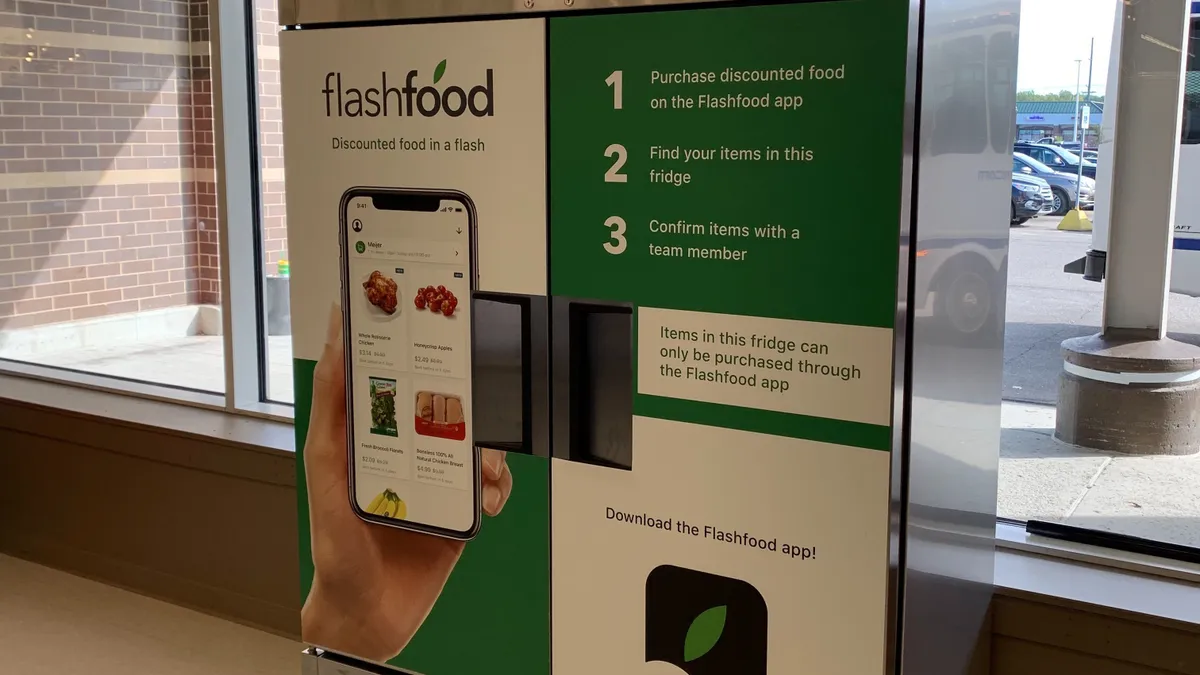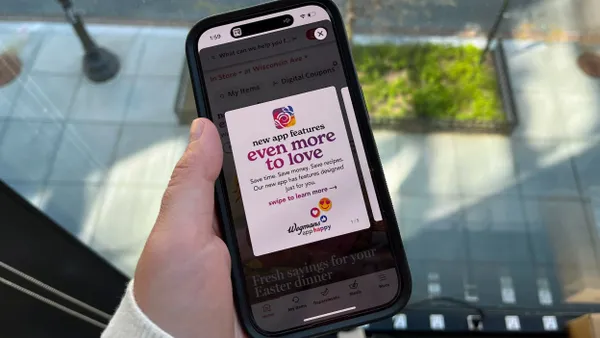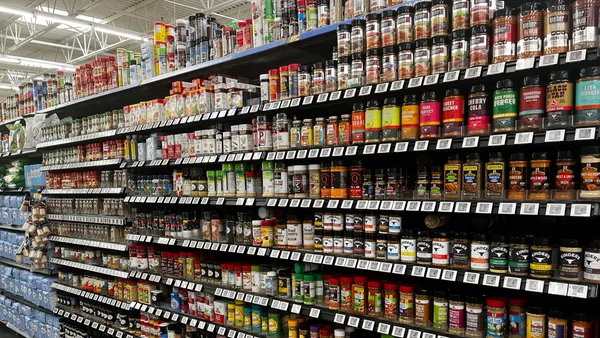Dive Brief:
- Midwestern regional grocer Meijer is on track to integrate Flashfood’s food waste reduction app into all of its stores by the end of 2021 after facing delays with the rollout due to the coronavirus pandemic, the company said in a press release on Thursday.
- Originally, Meijer planned to have the initiative rolled out chainwide by the end of 2020. The Flashfood app, first piloted by Meijer in its Detroit stores in November 2019, reduces food waste by offering customers nearly-expired products at prices discounted up to 50%, which shoppers can order and then pick up at Meijer stores.
- So far, the grocer has brought Flashfood to around 240 of its 256 stores, which span six states. Meijer's food waste efforts address an issue that nonprofit Refed has labeled as an $18.2 billion liability for the grocery industry.
Dive Insight:
Meijer's expansion of the initiative follows what was seen as a successful pilot effort at four Meijer locations in fall 2019, where the Flashfood app cut food waste at the stores by more than 10% and drew more than 1,000 active users. Flashfood works using a click-and-collect function linked to a Meijer customer service counter.
In other moves to reduce food waste, Meijer has recycled waste from several of its dairy facilities into animal feed and turned fresh food byproducts into compost. The grocery chain has also partnered with a number of food banks for its “food rescue program,” where its stores support a food rescue bank.
Measures that cut down on food waste can strengthen grocers’ profitability by avoiding redundant purchases and curbing costs of restocking, as well as cultivating goodwill among environmentally conscious shoppers and those on a budget.
Food waste has been an issue on many national grocers’ agendas for a while, but the influx in technological innovations that address the problem head-on is relatively new. Direct-to-consumer “ugly” produce subscription boxes, such as Hungry Harvest, have accelerated operations to meet a spike in demand. Apeel Sciences, a California-based startup, has attracted attention as it scales up its product: a waxy second skin for produce that is applied after harvesting to extend the shelf life.
Mel Smith, CEO of Ocado Retail, has predicted the rise in online grocery delivery will dramatically reduce food waste, noting that Ocado's supply chains are shorter and its predictive technology makes inventories more exact and adaptive to consumers’ tastes. Smith noted that Ocado's food waste rate was 0.04% in 2020, while traditional supermarket rates can reach up to 5%.
Larger grocery chains have turned to greater food waste elimination goals, such as Kroger’s “Zero Waste” aim for 2025. Other grocers have also been working with Flashfood to launch their own collaborations including Hy-Vee and The Giant Company — the latter announced in December plans to expand Flashfood to 33 stores.












